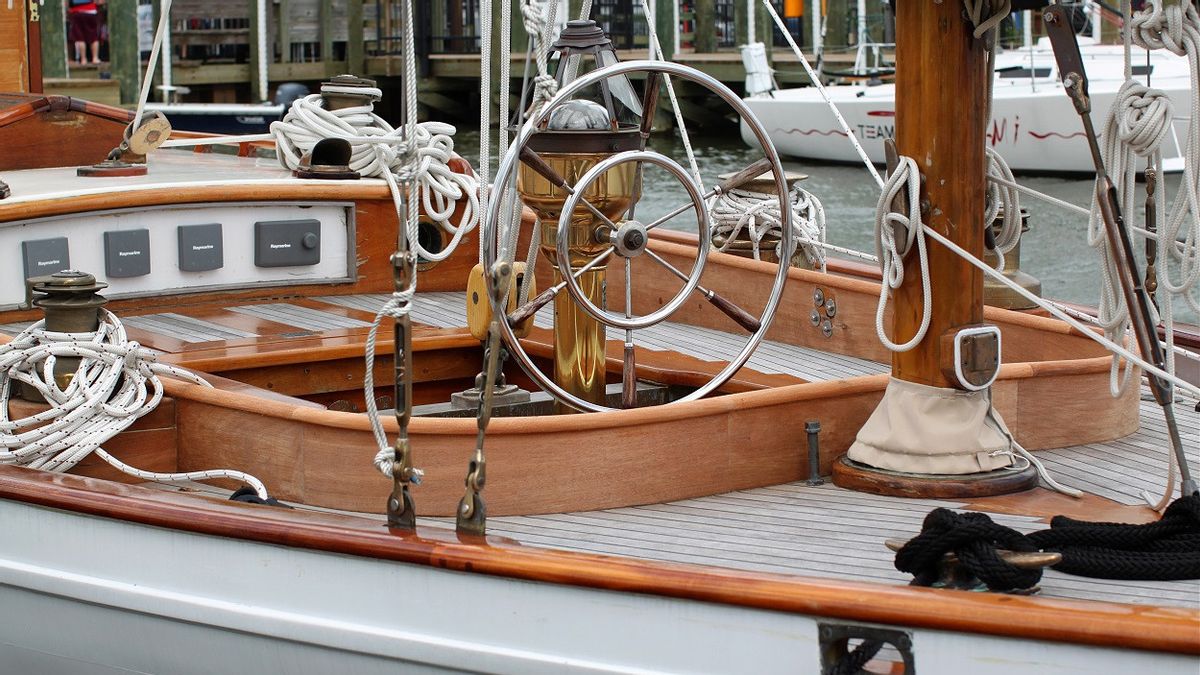JAKARTA - As one of the most valuable hardwoods in the world due to its finish and durability, teak is becoming increasingly popular among the wealthy.
It is one of the most well-known timbers and comes from the tropical forests of Indonesia and Myanmar - which are the largest suppliers in the world.
But since the military seized power in 2021 in Myanmar and the European Union imposed economic and trade sanctions, the teak trade has shifted to an underground illegal market.
The durability and sturdiness of teak make it very popular for yacht decks, which is why it has such a high price tag. But for customers who own luxury yachts, money is not an issue. It's all about prestige.
So of course the profit margin for teak traders is high. And while EU imports are banned if legality and sustainability cannot be proven, sought-after timber still finds its way to the continent.

The European Timber Regulation, which is intended to reduce illegal logging, came into force in 2013, to ensure that no illegal timber can be sold in the European Union.
It prohibits operators in Europe from placing illegally harvested timber and products derived from illegal timber on the EU market. 'Legal' wood is defined as wood produced in accordance with the laws of the country where it is harvested, as stated on the European Forest Institute website.
To ensure that all necessary regulations are complied with, the regulation requires operators who place timber on the EU market for the first time, carry out 'due diligence', for example with verified documentation and documents. However, this process is dependent on the national laws of each country, which means that a pan-European procedure does not exist.
Faith Doherty, who works for the Environmental Investigation Agency (EIA), knows that there is no legal way to import teak from Myanmar.
"Before the military coup in Myanmar, there were laws in place to help with sustainable logging and sustainable trade," he explained.
"One of the basic things is the annual deductions that are allowed. So how much can you log in and where. From our monitoring and documentation, we can say that this is never really complied with," he explained.

This raises suspicion in the AMDAL about how the current system works, as there is currently no transparency or independent verification.
According to the EIA, illegal timber from Myanmar enters through China to the EU border, where it is imported to Italy, Croatia or Greece.
Can genetic testing help identify illegal logging? In Germany, the Thünen Institute in Hamburg takes samples of imported wood and tests them genetically. The institute has one of the largest collections of wood samples in the world and can compare them genetically to see where they came from.
This method has its limitations. If timber is cut on the border between legal and illegal areas, it is impossible to distinguish between them.
"Genetics doesn't stop at borders. Colleagues from the Institute of Forest Genetics only detect differences at distances of about 50 to 100 kilometers," said Gerald Koch, from the Thünen Institute.

In addition, not all types of wood can also be tested.
"In Germany alone, we have about 20,000 registered market participants. Not all wood products can be tested. After all, not just solid wood, but also wood-based materials, fiberboard, paper and finished furniture," he told Euronews.
"Wood is also processed into musical instruments, children's toys, tool handles and charcoal. This is again not subject to EUTR so far," he continued.
The logs were also mixed in in the stockpile, Doherty said, and the markings did not always reflect their origin, making identification difficult, if not impossible.
What are the possible solutions? The only way to protect Myanmar's teak, according to Gerald Koch, is to include it on the Washington Convention on the International Trade in Endangered Species (CITES) list. But, he said, this would only work if Myanmar cooperated.
"Military dictatorships will not support that, because they see teak as an important source of foreign currency," he said.
Another option, he said, is monitoring the logging area with GPS, satellite and drone technology.
To note, the European Union is currently working on a so-called supply chain law to further curb imports of illegally harvested timber. But here too, all European countries must work together for change to take place.
The English, Chinese, Japanese, Arabic, and French versions are automatically generated by the AI. So there may still be inaccuracies in translating, please always see Indonesian as our main language. (system supported by DigitalSiber.id)









